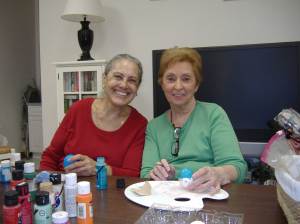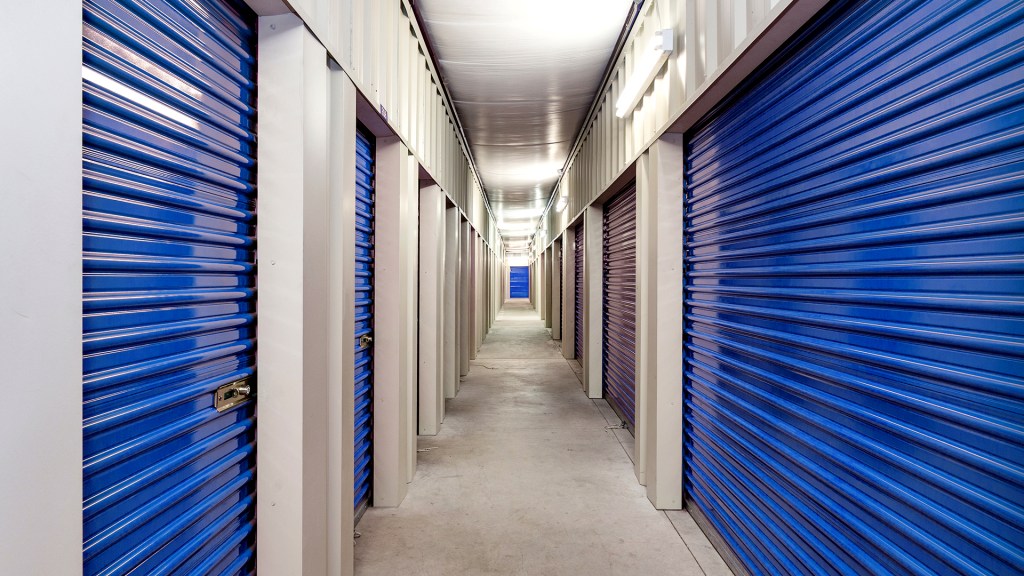By Erica Rascón on April 19, 2013 in Giving People
 Phipps Community Development Corporation (Phipps CDC) is dedicated to creating programs that help lift families out of poverty. More than 40 programs provide New Yorkers with the tools needed for self-sufficiency and promising futures.
Phipps Community Development Corporation (Phipps CDC) is dedicated to creating programs that help lift families out of poverty. More than 40 programs provide New Yorkers with the tools needed for self-sufficiency and promising futures.
Nancy Riedl, Director of Development and Communications, addresses the hurdles that many low-income families face, “Housing isn’t the only answer. Residents need other supportive services—education, career readiness and community resources—to propel them into successful and sustainable futures. Our programs address these issues,” she says. “Many people living in poverty haven’t been exposed to all of the resources that they need. We try to directly address those needs where we find them.” Each year, Phipps CDC assists more than 9,000 New Yorkers with a variety of resources to meet their unique needs.
Youth Education
To break the cycle of poverty, Phipps CDC begins working with expectant parents and those with young children in its Early Head Start program. Classes are held in clients’ homes or at community centers, helping parents prepare their homes, finances, and social lives for the joys and challenges of parenting.
More than 1,000 children ages 5-13 partake in Phipps CDC after-school programs. Volunteers and staff offer homework assistance, computer instruction, and guidance in the visual and performing arts, culinary arts, environmental studies and sports. The activities encourage kids to set goals, work in teams, and practice self-discipline. As a result, youth discover the skills needed to build confidence, become stronger students and take leadership positions among their peers.
Phipps CDC youth programs extend beyond the school year and into the vacation months. Each summer, more than 600 families participate in camps that strengthen the body and the mind. Full-day camps pull youth away from the televisions and provide a safe, structured environment in which they can thrive. Fitness, literacy, arts and crafts, science, athletics and field trips transform summers into extended learning opportunities.
“Our programs provide practical and inspirational services,” Riedl explains. “Most of these families have single working parents. Parents can’t be home with them in the evenings or with them all day in the summer. So our programs address that practical concern. Simultaneously the young people aren’t always achieving what they’re capable of academically so we’re taking the opportunity to teach them.”
Phipps CDC is strengthening its after-school curriculum with a new initiative that provides consulting services to staff and volunteers. The consultants aim to maximize the impact of programs by setting aside traditional curriculums in honor of youth-lead initiatives. The teachers work with students to brainstorm an issue or concept that is of interest to them. An interdisciplinary curriculum is then crafted based upon the issue. “This [approach] is an opportunity to get kids excited about learning, to take their educations into their own hands. It gives students a new prism through which they can see education and how it’s applicable to their lives,” says Riedl.
Young Adult Education
Older students and young adults are eligible for ESL classes, pre-GED and GED classes, college prep and work readiness training. Such programming helps young adults transition into the responsibilities of adulthood while cultivating professional skill sets.
The NYC Justice Corps was created for young adults ages 18-24 who have passed through the criminal justice system. Participants are given the opportunity to change the direction of their lives through employment and community service projects. For Riedl, the NYC Justice Corp has proven to be one of the most inspiring programs. “It’s a really fascinating process because the young people decide what they’re going to do. They begin to take control of the direction of their lives. They see how their positive actions now create more positive futures, and the community benefits.”
The skills learned during their services are used to build participants’ resumes and prepare them for careers. Simultaneously, the young adults are giving back to their communities by filling needs. “For example, one class of NYC Justice Corps students decided to renovate the local community center as their project,” says Riedl. “The renovation helped them develop skills in construction, painting, project management—it gives them something to tell future employers. It also sparked volunteerism.” NYC Justice Corps participants serve as role models to other youth who may have been headed in the same direction. “The success stories in this program are really amazing. The young people have made their mistakes. They admit it. Now they are taking this opportunity to turn their lives around and improve their communities,” Riedl says. Since 2011, 128 participants have completed the program.
Yardi recently contributed to the College Access program at the Urban Assembly School for Wildlife Conservation (UASWC). The grant partially funds a college advisor position as well as SAT prep and classroom materials. Through the program, students have access to vital resources to help them select a college or university, learn about financial aid, and focus more acutely on their areas of interest. Such opportunities are rare and groundbreaking for a school that is located in one of the nation’s poorest communities. “This is an exciting school partnership for us because the UASWC is preparing to graduate its first class next year,” Riedl says.
Adult Housing and Opportunities
 Accessibility plays a major factor in the success of Phipps CDC adult classes and workshops. Many services are offered at or near Phipps Houses properties. As such, residents have easy access to financial counseling, basic education, health and literacy programs.
Accessibility plays a major factor in the success of Phipps CDC adult classes and workshops. Many services are offered at or near Phipps Houses properties. As such, residents have easy access to financial counseling, basic education, health and literacy programs.
Phipps Housing developments are designed to promote healthy and productivity lifestyles for marginalized families. New developments, such as Via Verde, provide affordable housing that promotes healthy living and environmental sustainability. The LEED Gold Certified building is home to a co-op garden, playgrounds, social spaces, amphitheater, and green roofs that are as practical as they are eye-catching. “It’s such a phenomenal place. During the open house I thought, ‘Are you kidding? This is affordable?’ That’s what we want, to remove the stigma around affordable housing. We aren’t just cramming people in. We figured out how to take a challenging site and make it a jewel in this community,” states Riedl.
Hunter’s Point South broke ground in early March 2013. Upon completion, New York will receive 925 permanently affordable housing units with access to uncommon amenities. “It will be an absolutely beautiful property,” Riedl says. “The site is in Queens facing Manhattan so residents will have breathtaking views. In the future, the area will be developed into a waterfront site. There will be parks, plenty of amenities. With public transit nearby, the rest of New York will be easily accessible.” Portions of the development will include retail spaces and housing for middle income families. Phipps CDC programs will be made available to residents of Hunter’s Point South. Phipps Houses hopes to set an example for other building firms and nonprofit organizations throughout the nation: affordable housing and social services can be appealing, innovative, and cost-effective.
Since 1905, Phipps Houses has built more than 6,000 affordable housing units for families throughout Manhattan, Queens, and the Bronx. Through sustainable programs offered through Phipps CDC, these families have received the resources needed to forge a path out of poverty into a future with greater opportunities.


